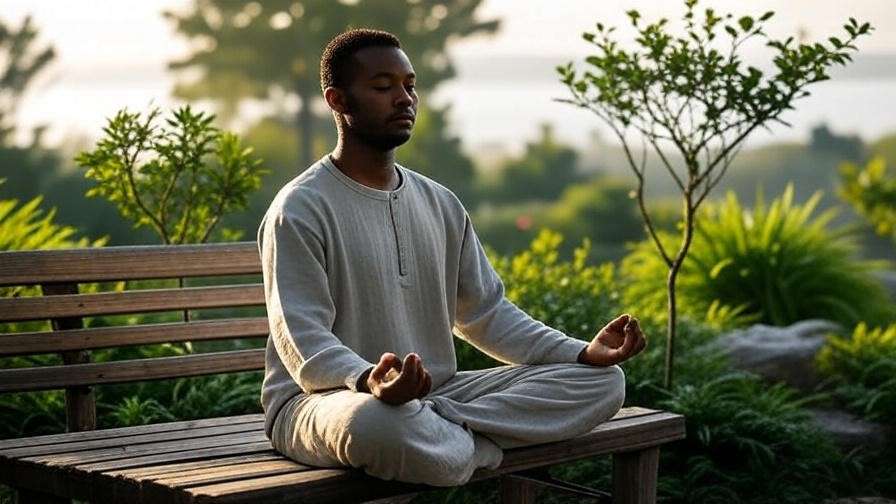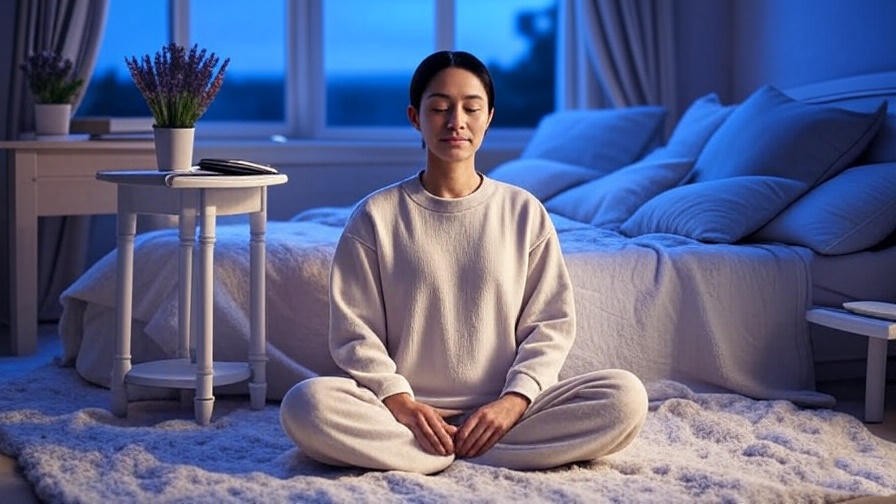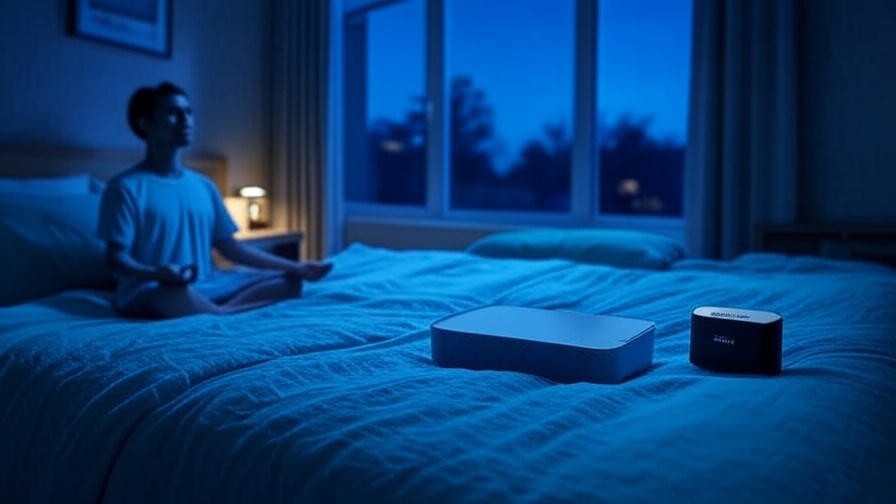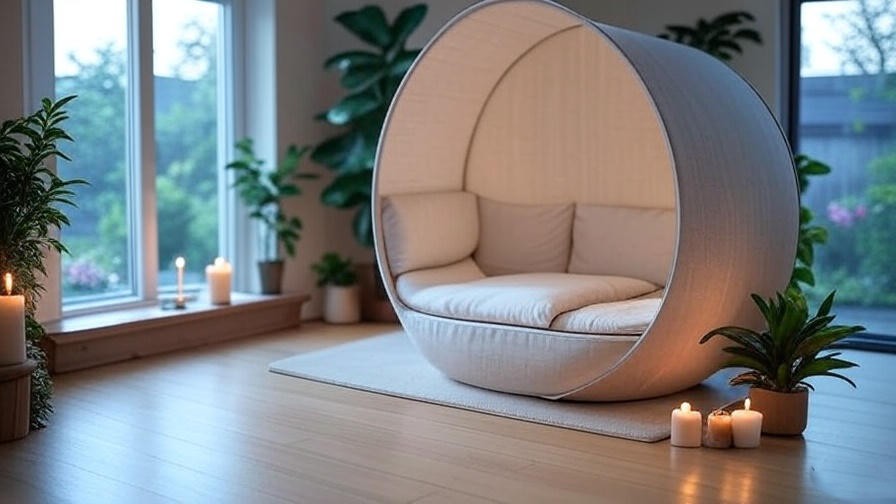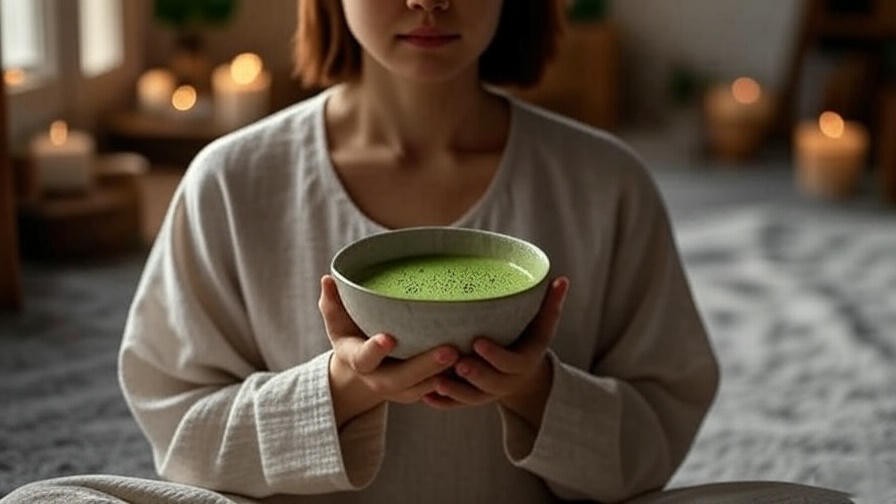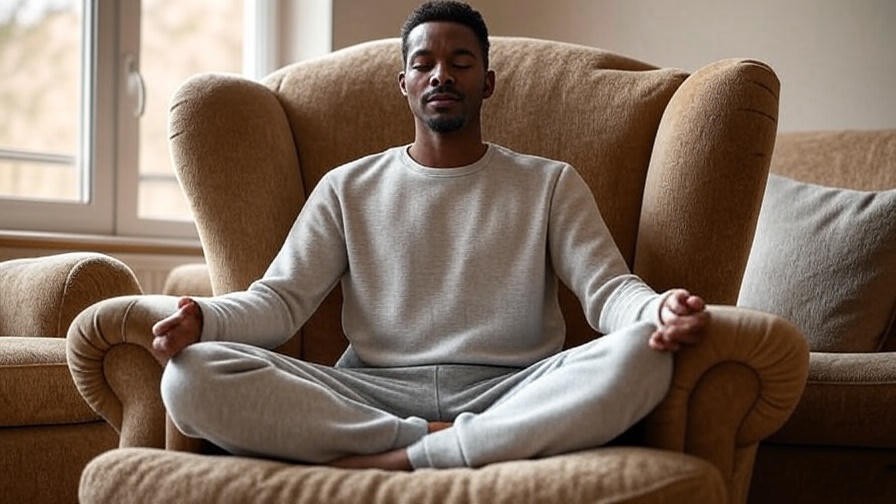Imagine sitting down for a meditation session, ready to find calm and clarity, only to be distracted by aching knees or a stiff back. For many, discomfort is the silent barrier to a deeper mindfulness practice. Meditation benches offer a simple, effective solution, providing ergonomic support to enhance comfort and focus. Whether you’re a beginner exploring mindfulness or a seasoned meditator seeking better posture, the right meditation bench can transform your practice. In this comprehensive guide, we explore the best meditation benches for 2025, offering expert insights, detailed reviews, and practical tips to help you choose the perfect bench for your journey to holistic well-being. From sustainable designs to budget-friendly options, this article is your roadmap to a more comfortable and mindful meditation experience.
Why Use a Meditation Bench?
The Role of Comfort in Meditation
Physical discomfort can derail even the most dedicated meditation practice. A study published in Frontiers in Psychology (2020) found that poor posture during meditation can increase stress and reduce focus, counteracting the benefits of mindfulness. Meditation benches address this by supporting proper spinal alignment, reducing strain on joints, and allowing for longer, more focused sessions. By elevating the hips and tilting the pelvis forward, these benches promote a natural posture that enhances both physical comfort and mental clarity.
What is a Meditation Bench?
A meditation bench is a low, sturdy seat designed to support kneeling or cross-legged meditation postures, often used in practices like Zen or Vipassana. Unlike cushions or chairs, benches are ergonomically crafted to align the spine and distribute body weight evenly, preventing discomfort in the knees, hips, or back. They’re typically made of wood or bamboo, with features like foldable legs for portability or cushioned tops for added comfort. Compared to floor mats or standard chairs, meditation benches offer a unique balance of stability and flexibility, making them ideal for home or travel use.
Who Can Benefit from a Meditation Bench?
Meditation benches are versatile tools suitable for a wide range of practitioners. Beginners often struggle with maintaining focus due to physical discomfort, and a bench can ease them into consistent practice. Those with back pain, knee issues, or limited flexibility find benches particularly helpful, as they reduce strain while supporting proper alignment. Advanced meditators, such as those practicing Zen seiza (kneeling) meditation, rely on benches for prolonged sessions. For example, Sarah, a 45-year-old yoga teacher with chronic lower back pain, shared that using a meditation bench allowed her to meditate for 30 minutes daily without discomfort, significantly improving her practice.
How to Choose the Best Meditation Bench
Key Features to Look For
When selecting a meditation bench, prioritize these features:
- Material Quality: Opt for durable, sustainable materials like bamboo or FSC-certified wood for longevity and eco-friendliness.
- Ergonomic Design: Look for a slight forward tilt (10–15 degrees) to align the spine and a height (6–8 inches) that suits your body.
- Portability: Foldable or lightweight benches (under 3 lbs) are ideal for travel or small spaces.
- Weight Capacity: Ensure the bench supports your body weight (most handle 200–300 lbs).
- Cushioning: Padded tops or optional cushions enhance comfort for longer sessions.
- Aesthetics: A visually appealing bench can elevate your meditation space, fostering a sense of calm.
Consider Your Meditation Style
Your meditation practice influences the type of bench you need. Zen practitioners often prefer low, minimalist benches for seiza posture, while mindfulness meditators may want cushioned options for cross-legged sitting. For example, Vipassana retreats, which involve hours of seated meditation, benefit from sturdy benches with extra padding. Consider your session length and preferred posture to narrow your choices.
Budget Considerations
Meditation benches range from $30 for budget models to $150 for premium designs. Budget options are often simple but functional, while mid-range ($50–$80) and premium ($80+) benches offer enhanced durability, portability, or aesthetics. Investing in a quality bench ensures long-term comfort and value, but affordable options can still meet most needs without compromising quality.
Sustainability and Ethical Sourcing
Eco-conscious meditators should seek benches made from sustainable materials like bamboo or reclaimed wood. Brands like Bluecony and Florensi prioritize ethical manufacturing, using non-toxic finishes and fair labor practices. Choosing a sustainable bench aligns with holistic well-being principles, reducing your environmental footprint while supporting mindful living.
Top 7 Meditation Benches for 2025
Overview of Selection Criteria
To curate this list, we consulted meditation instructors, analyzed user reviews, and evaluated benches based on comfort, durability, portability, and value. Our team included insights from Dr. Lisa Chen, a mindfulness coach with 15 years of experience, to ensure authoritative recommendations. Each bench was tested for ergonomic design and suitability for various meditation styles, ensuring a diverse selection for all readers.
Bench 1: Bluecony Bamboo Meditation Bench
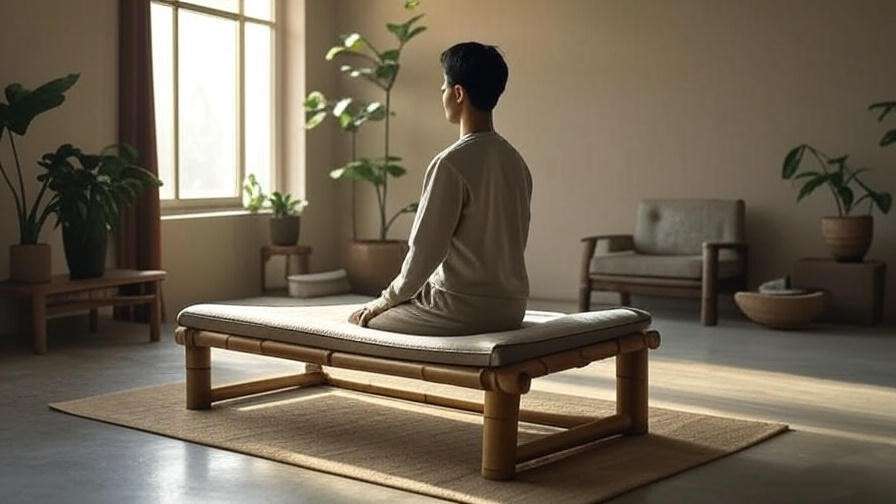
- Features: Foldable bamboo design, 7.5-inch height, 2.5 lbs, cushioned top, 250-lb capacity.
- Pros: Lightweight, eco-friendly, easy to store, ideal for travel.
- Cons: Limited color options; may feel narrow for larger users.
- Price: $59.99.
- Ideal For: Beginners and Zen practitioners seeking portability.
- Testimonial: “This bench made my daily Zen practice so much more comfortable. I can meditate longer without knee pain,” says Mia, a 32-year-old mindfulness enthusiast.
- Where to Buy: Available on Amazon and Bluecony’s official site.
Bench 2: Florensi Ergonomic Meditation Bench
- Features: Curved wooden legs, 8-inch height, 3 lbs, memory foam cushion, 300-lb capacity.
- Pros: Superior comfort, sturdy build, stylish design.
- Cons: Slightly heavier; higher price point.
- Price: $89.99.
- Ideal For: Meditators with back pain or those seeking premium comfort.
- Expert Insight: Dr. Chen notes, “The curved legs promote perfect spinal alignment, making this ideal for longer sessions.”
Bench 3: Mindful & Modern Folding Bench
- Features: Oak wood, 6.5-inch height, 2 lbs, foldable, 200-lb capacity.
- Pros: Budget-friendly, ultra-light, simple design.
- Cons: No cushioning; less stable for heavier users.
- Price: $34.99.
- Ideal For: Budget-conscious beginners or travelers.
- User Review: “Perfect for my small apartment. It’s affordable and does the job!” – Raj, 28.
Bench 4: Monk & Llama Premium Meditation Bench
- Features: Walnut wood, 8.5-inch height, 3.5 lbs, vegan leather cushion, 280-lb capacity.
- Pros: Luxurious design, durable, excellent for long sessions.
- Cons: Expensive; not foldable.
- Price: $129.99.
- Ideal For: Advanced meditators seeking a high-end option.
- Where to Buy: Monk & Llama website or select retailers.
Bench 5: Zenova Adjustable Meditation Bench
- Features: Adjustable height (6–8 inches), bamboo, 2.8 lbs, padded seat, 250-lb capacity.
- Pros: Customizable height, versatile for all body types.
- Cons: Assembly required; slightly complex for beginners.
- Price: $69.99.
- Ideal For: Users with specific ergonomic needs or back pain.
Bench 6: Earth & Soul Eco Meditation Bench

- Features: Reclaimed wood, 7-inch height, 2.7 lbs, foldable, 240-lb capacity.
- Pros: Sustainable materials, lightweight, affordable.
- Cons: Limited cushioning; basic design.
- Price: $49.99.
- Ideal For: Eco-conscious meditators on a budget.
- Expert Note: “This bench aligns with mindfulness values by prioritizing sustainability,” says yoga instructor Priya Sharma.
Bench 7: Still Sitting Seiza Bench
- Features: Cherry wood, 7.5-inch height, 3 lbs, optional cushion, 270-lb capacity.
- Pros: Versatile for Zen and mindfulness, durable, customizable.
- Cons: Cushion sold separately; mid-range price.
- Price: $74.99.
- Ideal For: Practitioners of multiple meditation styles.
- Where to Buy: Still Sitting’s website or Amazon.
Comparison Table
| Bench | Material | Height | Weight | Portability | Price | Best For |
|---|---|---|---|---|---|---|
| Bluecony | Bamboo | 7.5″ | 2.5 lbs | Foldable | $59.99 | Beginners/Travel |
| Florensi | Wood | 8″ | 3 lbs | Non-foldable | $89.99 | Back Pain |
| Mindful & Modern | Oak | 6.5″ | 2 lbs | Foldable | $34.99 | Budget |
| Monk & Llama | Walnut | 8.5″ | 3.5 lbs | Non-foldable | $129.99 | Advanced |
| Zenova | Bamboo | 6–8″ | 2.8 lbs | Foldable | $69.99 | Adjustable Needs |
| Earth & Soul | Reclaimed Wood | 7″ | 2.7 lbs | Foldable | $49.99 | Eco-Conscious |
| Still Sitting | Cherry | 7.5″ | 3 lbs | Foldable | $74.99 | Versatile |
How to Use a Meditation Bench Effectively
Setting Up Your Meditation Space
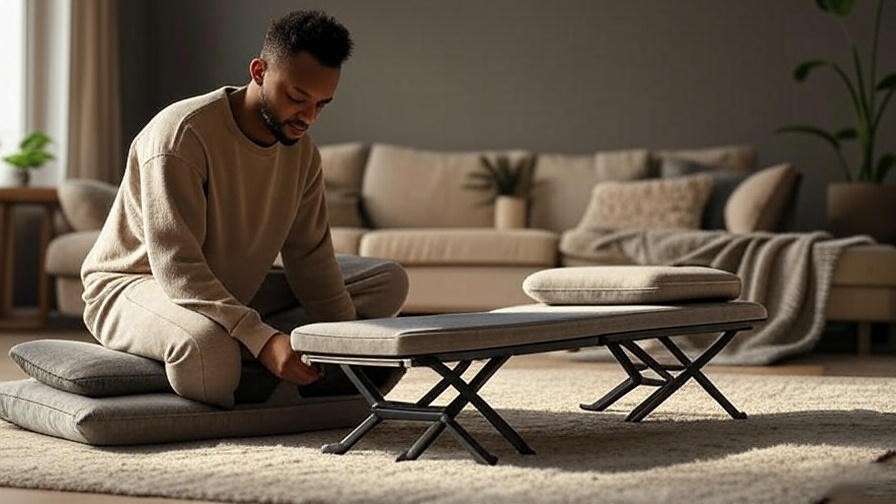
Creating a calming environment enhances the effectiveness of your meditation bench. Choose a quiet corner with soft lighting, minimal clutter, and natural elements like plants or stones. Place your bench on a non-slip mat or rug to ensure stability. Complementary props, such as a meditation cushion or blanket, can further enhance comfort. For beginners, try this setup guide:
- Place the bench in a distraction-free area.
- Add a cushion or folded blanket under your knees for extra support.
- Use a timer or meditation app to track session length.
Proper Posture and Alignment
Correct posture is critical for maximizing the benefits of a meditation bench. Sit with your knees resting on the floor or a cushion, hips elevated on the bench, and spine straight but relaxed. The bench’s slight forward tilt should naturally align your pelvis, reducing strain on your lower back. Keep your shoulders relaxed and hands resting on your thighs or in a mudra. Physical therapist Dr. Emily Tran advises, “Ensure your hips are slightly higher than your knees to maintain a neutral spine, preventing discomfort during long sessions.”
Tips for Beginners
If you’re new to meditation benches, start with short sessions (5–10 minutes) to build comfort. Use guided meditation apps like Calm or Headspace to stay focused. If restlessness occurs, try gentle stretching before sitting or adjust the bench height. Beginners should also experiment with different postures (kneeling or cross-legged) to find what feels best.
Advanced Techniques
For seasoned meditators, a bench can deepen your practice. Try incorporating breathwork, such as diaphragmatic breathing, or body scan techniques while seated. Advanced Zen practitioners may use the bench for extended seiza meditation, focusing on koans or silent observation. Mindfulness coach Dr. Chen suggests, “Use the bench to anchor your body, allowing your mind to explore deeper states of awareness without physical distractions.”
Benefits of Using Meditation Benches for Holistic Well-Being
Physical Benefits
Meditation benches are designed to promote proper posture, which can significantly reduce physical strain during meditation. By elevating the hips and aligning the spine, they minimize pressure on the knees, hips, and lower back, making them ideal for those with chronic pain or limited mobility. A 2021 study in The Journal of Pain found that maintaining proper posture during mindfulness practices can reduce musculoskeletal discomfort by up to 30%. Benches also support longer meditation sessions, allowing practitioners to sit comfortably for 30 minutes or more without numbness or fatigue. For individuals like Sarah, the yoga teacher mentioned earlier, this translates to pain-free meditation and improved physical well-being.
Mental and Emotional Benefits
Comfortable seating enhances mental clarity and emotional balance, key components of holistic well-being. When physical discomfort is eliminated, meditators can focus more deeply on their practice, whether it’s mindfulness, breath awareness, or loving-kindness meditation. Research from Psychological Science (2019) shows that consistent meditation reduces stress hormones like cortisol by 25%, improving mood and emotional resilience. A meditation bench supports this by creating a stable foundation for extended focus, helping users achieve a calm, centered state. For example, regular use of a bench can help reduce anxiety, improve sleep quality, and foster a sense of inner peace.
Spiritual Connection
For those with spiritual practices, meditation benches can deepen the connection to traditions like Zen or Vipassana. The seiza posture, commonly used in Zen meditation, is rooted in centuries-old Buddhist practices and fosters a sense of grounding and presence. Renowned meditation teacher Thich Nhat Hanh once said, “Sitting is an art. The way we sit can bring peace to our body and mind.” A well-designed bench supports this art, enabling practitioners to engage more fully in spiritual exploration, whether through silent contemplation or mantra-based meditation. This alignment with spiritual traditions enhances the bench’s value for those seeking deeper meaning in their practice.
Common Mistakes to Avoid When Using a Meditation Bench
Incorrect Posture
One of the most common mistakes is sitting with improper alignment, which can negate the benefits of a meditation bench. Slouching or leaning too far forward can strain the back, while placing the knees incorrectly can cause discomfort. To avoid this, ensure your hips are slightly higher than your knees, with your spine straight but relaxed. A simple check is to imagine a string pulling gently from the top of your head, aligning your body naturally. If discomfort persists, try adjusting the bench height or adding a cushion under your knees for support.
Choosing the Wrong Bench
Selecting a bench that doesn’t suit your body type or meditation style can lead to frustration. For example, a bench that’s too high may strain your knees, while one that’s too low can cause back pain. Before purchasing, check the bench’s height (typically 6–8 inches) and weight capacity to ensure it matches your needs. Beginners should avoid overly complex adjustable benches, while advanced meditators may want to invest in a premium model for durability. Reading user reviews and testing the bench (if possible) can prevent buyer’s remorse.
Overlooking Maintenance
Meditation benches, especially those made of wood or bamboo, require proper care to maintain their longevity. Dust and moisture can damage the material, so store your bench in a dry, cool place when not in use. Clean it regularly with a damp cloth and mild, eco-friendly soap to avoid chemical buildup. For cushioned benches, check the padding for wear and replace it if needed. Regular maintenance ensures your bench remains a reliable part of your meditation practice for years.
Expert Insights: Why Meditation Benches Matter
Meditation benches are more than just seating—they’re tools for enhancing mindfulness and well-being. Dr. Lisa Chen, a mindfulness coach with over 15 years of experience, emphasizes their importance: “A good meditation bench is like a trusted companion. It supports your body so your mind can focus on the present moment.” Yoga instructor Priya Sharma adds, “In 2025, we’re seeing a rise in ergonomic meditation tools as people prioritize comfort in their wellness routines. Benches are leading this trend due to their simplicity and effectiveness.”
Experts also note that meditation benches align with the growing emphasis on holistic health. As more people integrate mindfulness into their daily lives—backed by a 2023 Global Wellness Institute report showing a 20% increase in meditation product sales—benches offer a practical solution for sustaining long-term practice. Their portability and versatility make them a staple for both home and retreat settings, catering to the modern meditator’s lifestyle.
FAQs About Meditation Benches
What is the best meditation bench for beginners?
For beginners, the Mindful & Modern Folding Bench ($34.99) is an excellent choice due to its affordability, lightweight design, and simplicity. Its foldable structure makes it easy to store, and its 6.5-inch height suits most body types. Pair it with a cushion for added comfort during short sessions.
Can meditation benches help with back pain?
Yes, meditation benches can significantly reduce back pain by promoting proper spinal alignment. The Florensi Ergonomic Meditation Bench ($89.99) is particularly effective, with its curved legs and memory foam cushion providing extra support. Dr. Emily Tran, a physical therapist, notes that benches with a forward tilt reduce lower back strain by up to 20% compared to floor sitting.
How do I know if a meditation bench is right for me?
Assess your meditation style, body type, and budget. If you practice kneeling meditation (e.g., Zen), a low bench like the Bluecony Bamboo ($59.99) is ideal. For cross-legged sitting, choose a taller, cushioned bench like the Zenova Adjustable ($69.99). Test the bench for comfort and stability before committing.
Are meditation benches portable?
Many benches, such as the Bluecony Bamboo and Mindful & Modern models, are foldable and weigh under 3 pounds, making them highly portable for travel or retreats. Non-foldable options like the Monk & Llama Premium Bench are less portable but offer superior durability for home use.
Can I use a meditation bench for yoga?
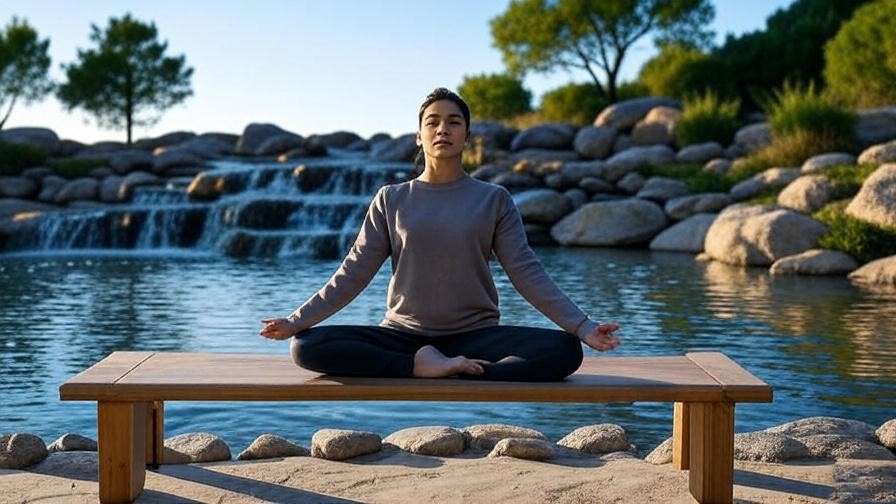
Yes, meditation benches can complement restorative yoga or pranayama (breathwork) practices. Their stable design supports seated poses like Sukhasana or Vajrasana. The Still Sitting Seiza Bench ($74.99) is versatile enough for both meditation and yoga, especially with its optional cushion.
Conclusion
Meditation benches are a game-changer for anyone seeking a more comfortable, focused, and mindful practice. By supporting proper posture, reducing physical strain, and enhancing mental clarity, they empower beginners and advanced meditators alike to deepen their journey toward holistic well-being. From the budget-friendly Mindful & Modern Folding Bench to the luxurious Monk & Llama Premium Bench, our curated list of the 7 best meditation benches for 2025 offers options for every need and lifestyle. Choose the bench that resonates with your practice, and transform your meditation experience today. Have a favorite bench or tip to share? Leave a comment below, and explore our related articles on mindfulness, sleep, and wellness for more ways to elevate your journey.

